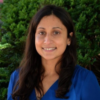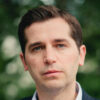2026 Annual Meeting March 16-19, 2026
2026 Annual Meeting
March 16-19, 2026
Boston, MA
Boston Hilton Park Plaza
The fruits of the “affect revolution” in conceptualizing, understanding, and intervening in psychopathology
The “affect revolution” during the past several decades had focused substantial research efforts on the roles of the experience and regulation of emotion and mood in psychological adjustment and psychopathology. The experience and regulation of affect has now been studied across the entire life-span and in lab and daily-life settings; various biomarkers have been examined; emotion regulation that goes awry has been conceptualized as a transdiagnostic process; dysregulated affect also has been proposed as a risk factor for various psychopathologies and psychiatric disorders; and the vast and continuously expanding literature on emotion-focused interventions speaks to the timeliness of these topics. The 2026 APPA meeting will address the question as to what has been learned as the consequence of the “affect revolution.” What is the current status of affect in our conceptualization of human behavior? Has the research across the past several decades yielded novel findings about the relationship of affect experience and psychopathology? Have the findings advanced our understanding of the course and outcomes of major psychiatric disorders like depression, schizophrenia, or substance-use related conditions? And what is the future of affect-focused research?
Maria Kovacs, PhD
University of Pittsburgh School of Medicine, Department of Psychiatry























